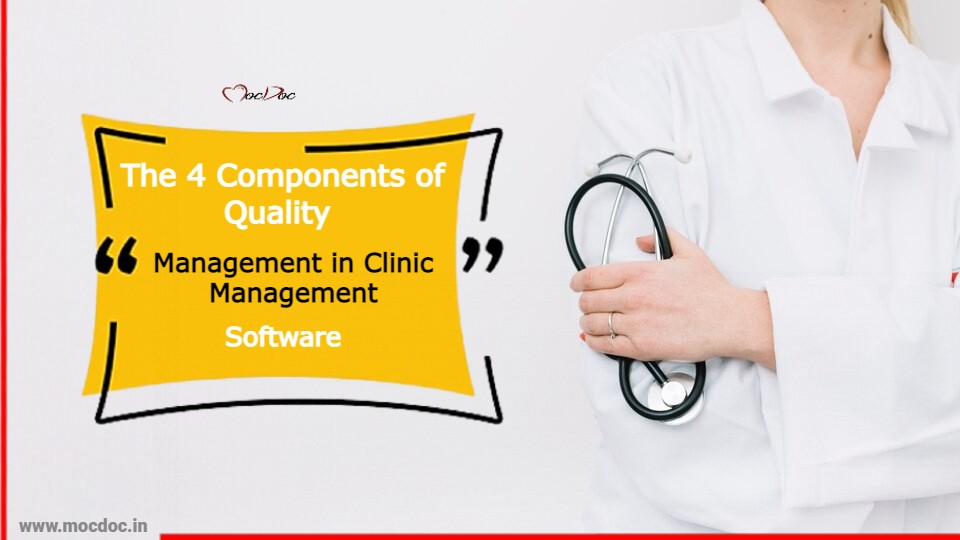The 4 Components Of Quality Management In Clinic Management Software
- - Category: Project Management
- - 15 May, 2023
- - Views: 32
- Save
Learn how clinic management software plays a crucial role in streamlining operations and enhancing patient care.
Introduction :
Clinic management software plays a crucial role in streamlining operations and enhancing patient care in healthcare facilities. To ensure optimal performance and deliver high-quality services, it is essential to focus on quality management within the clinic management system. In this blog, we will explore the four key components of quality management that contribute to the effectiveness and efficiency of clinic management software.
Process Standardization :
One of the fundamental components of quality management in clinic management software is process standardization. This involves establishing standardized protocols and procedures for various tasks and workflows within the system. By defining consistent processes, clinics can ensure that each step is performed efficiently and effectively, minimizing errors and maximizing productivity. Standardized processes also facilitate easier training for new staff members and promote a consistent level of service across the organization. Clinic management software should provide the flexibility to adapt and customize these processes to align with the specific needs and workflows of the clinic.
Data Accuracy and Integrity :
Data accuracy and integrity are crucial for reliable and informed decision-making within a clinic management system. Quality management involves implementing measures to ensure that the data entered into the system is accurate, complete, and up-to-date. This includes validating and verifying data inputs, implementing data quality checks, and maintaining data integrity throughout the system. By upholding data accuracy and integrity, clinics can trust the information generated by the software, enabling them to make informed decisions about patient care, resource allocation, and financial management.
Performance Monitoring and Analysis:
Clinic management software should offer robust performance monitoring and analysis capabilities. This component of quality management involves tracking key performance indicators (KPIs) within the system to assess efficiency, productivity, and service quality. KPIs may include metrics such as appointment wait times, patient satisfaction scores, staff productivity, and revenue generation. By monitoring these metrics, clinics can identify areas for improvement, track progress over time, and make data-driven decisions to optimize operations and enhance patient care.
Continuous Improvement and User Feedback:
Continuous improvement is an essential aspect of quality management in clinic management software. The software should provide mechanisms for gathering user feedback and suggestions to drive ongoing enhancements and updates. This can include features like user surveys, feedback forms, or user forums where staff can provide input on their experiences with the system. By actively engaging users and incorporating their feedback, clinics can address pain points, identify opportunities for improvement, and ensure that the software evolves to meet their evolving needs. Regular software updates and enhancements based on user feedback contribute to a continuous improvement cycle, driving increased efficiency and user satisfaction.
Conclusion :
Effective quality management is critical for maximizing the benefits of clinic management software. By focusing on process standardization, data accuracy, and integrity, performance monitoring and analysis, and continuous improvement through user feedback, clinics can ensure that their clinic management software is a reliable and valuable tool that supports efficient operations, high-quality patient care, and overall organizational success.




